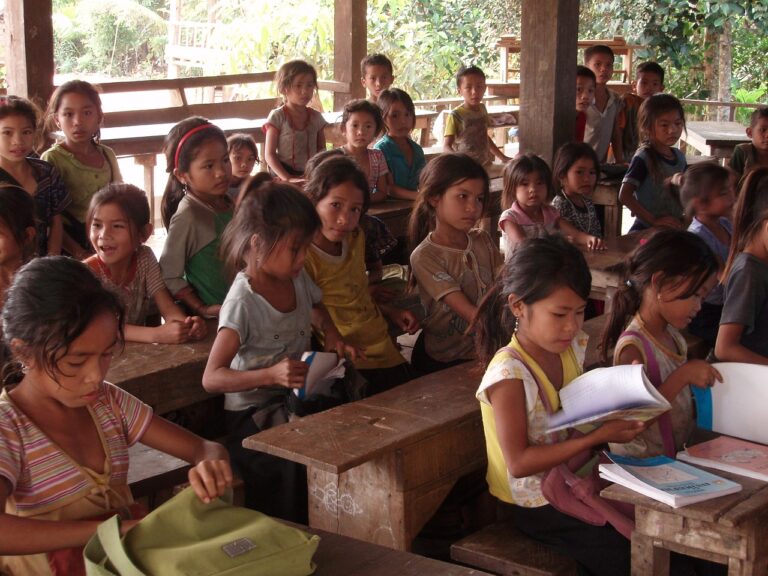Exploring Culturally Responsive Horticulture Education Practices
In the field of horticulture education, it is essential to recognize and embrace the diverse cultural backgrounds that students bring to the learning environment. This inclusivity allows for a richer educational experience where different perspectives and traditions can be shared and celebrated. By fostering cultural awareness, educators can create a more welcoming and respectful space for all individuals involved in horticultural studies.
Cultural awareness in horticulture education also plays a pivotal role in bridging the gap between traditional knowledge and modern practices. Incorporating varied cultural perspectives into the curriculum not only enriches students’ learning experiences but also promotes a deeper understanding of the interconnectedness between horticulture and different cultural contexts. This blending of traditional and contemporary knowledge fosters a holistic approach to horticultural education, shaping students into well-rounded professionals equipped to navigate diverse cultural landscapes.
Understanding Diverse Perspectives in Horticulture
In the field of horticulture, embracing diverse perspectives is crucial for fostering a more inclusive and well-rounded educational environment. By acknowledging and valuing the different viewpoints and experiences of individuals from various backgrounds, horticulture programs can cultivate a richer learning experience. These diverse perspectives offer unique insights that can enhance the understanding of traditional practices, modern techniques, and innovative approaches in horticultural practices.
When students and educators engage with diverse perspectives in horticulture, they are exposed to a broader range of ideas, methods, and cultural practices. This exposure not only enriches their own learning but also promotes respect and appreciation for the variety of contributions to the horticultural field. By incorporating diverse perspectives into the curriculum, horticulture education can become more inclusive and representative of the global nature of the industry.
• Embracing diverse perspectives in horticulture fosters a more inclusive educational environment
• Valuing different viewpoints and experiences enhances the learning experience
• Diverse perspectives offer unique insights into traditional practices, modern techniques, and innovative approaches
• Exposure to a broader range of ideas, methods, and cultural practices enriches learning and promotes respect for diversity
• Incorporating diverse perspectives into the curriculum makes horticulture education more inclusive and representative of the global industry.
Incorporating Traditional Knowledge in Horticulture Curriculum
Traditional knowledge in horticulture has been passed down through generations, providing valuable insights into sustainable growing practices that are deeply rooted in cultural traditions. Incorporating this traditional knowledge into horticulture curriculum can enrich students’ understanding of different cultivation techniques and foster respect for diverse perspectives in the field. By acknowledging and integrating traditional wisdom, educators can help students develop a holistic approach to horticulture that honors the interconnectedness of plants, people, and the environment.
Incorporating traditional knowledge in horticulture curriculum also presents an opportunity to recognize the expertise and contributions of indigenous communities to the field of horticulture. By valuing and incorporating diverse perspectives into the curriculum, students can gain a more comprehensive understanding of the complexities and nuances of plant cultivation practices around the world. This approach not only enhances students’ knowledge base but also promotes a sense of inclusivity and cultural awareness within the horticulture education community.
Why is cultural awareness important in horticulture education?
Cultural awareness is important in horticulture education as it helps students understand the diverse perspectives and practices related to gardening and agriculture. By learning about different cultures and their traditional knowledge in horticulture, students can gain a more holistic understanding of the field.
How can horticulture educators incorporate traditional knowledge in the curriculum?
Horticulture educators can incorporate traditional knowledge in the curriculum by inviting guest speakers from indigenous communities, organizing field trips to visit traditional gardens, and integrating case studies that highlight the importance of traditional practices in horticulture.
What are the benefits of incorporating traditional knowledge in horticulture education?
By incorporating traditional knowledge in horticulture education, students can learn valuable techniques and practices that have been passed down through generations. This can help students develop a deeper appreciation for diverse cultures and improve their skills as horticulturists.
How can students contribute to the preservation of traditional knowledge in horticulture?
Students can contribute to the preservation of traditional knowledge in horticulture by respecting and learning from indigenous communities, promoting sustainable practices in their own gardening efforts, and advocating for the protection of traditional lands and resources.





